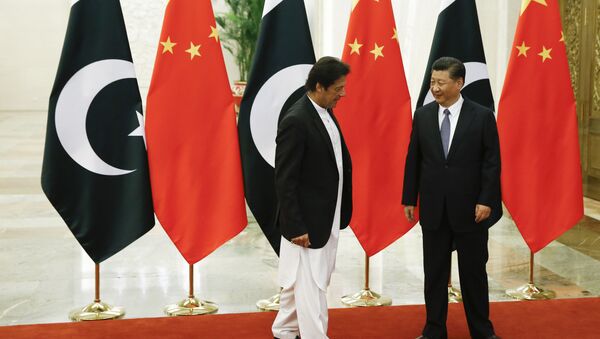While announcing that the 9th Joint Cooperation Committee meeting of CPEC was successful, the Chinese foreign ministry said the two “iron brothers” have approved and signed two agreements, including a Gwadar Master Plan.
“Multan-Sukkur Motorway (M-5), largest project under CPEC was inaugurated. Gwadar Master Plan was also approved & signed. Two MoUs were also signed. It set new directions from economic and industrial to energy & social sector,” Lijian Zhao, the deputy director general for the information department of Beijing's Ministry of Foreign Affairs said.
The two countries also formed a joint project financing group on the ML-1 railway line and aimed to start the project next month. However, Pakistan’s planning minister, Makhdum Khusro Bakhtyar, who co-chaired the meeting, allayed the fear of a rising Chinese debt on the country.
“Government decided to take ML-1 loan and ensure its repayment because of the limitations of Pakistan Railways… The project loan would not affect the country’s debt-to-GDP situation because it would be completed in about five-six years and contribute also to the GDP size as well,” the Pakistani minister said.
Financing may be in the Chinese renminbi currency, one of the six major currencies of the International Monetary Fund (IMF), he added.
The two countries discussed the security of the CPEC project and admitted that the Pak-Afghan border was a challenge but asserted that the ongoing construction of border walls would do away with any future threat upon completion in 2020.
“Pakistan’s security situation could not be 100 percent in our hands [as long as] these borders remain porous. This is the most important security project that would also help achieve law and order and the military and civil authorities have jointly controlled the security situation to a great extent,” the Pakistani minister added.
The Pakistani military is in the process of raising a division headquarters of the 44th Light Infantry in Balochistan’s Gwadar to coordinate security initiatives and protect the CPEC.
New Delhi has consistently expressed concerns to both China and Pakistan on the projects, as it considers that the project violates India’s sovereignty.
The CPEC is a flagship infrastructure-related project conceived by Chinese President Xi Jinping as part of Beijing's expanded multi-billion dollar Belt and Road Initiative (BRI) proposing to create more efficient commercial links between the continents of Asia, Africa, and Europe.


